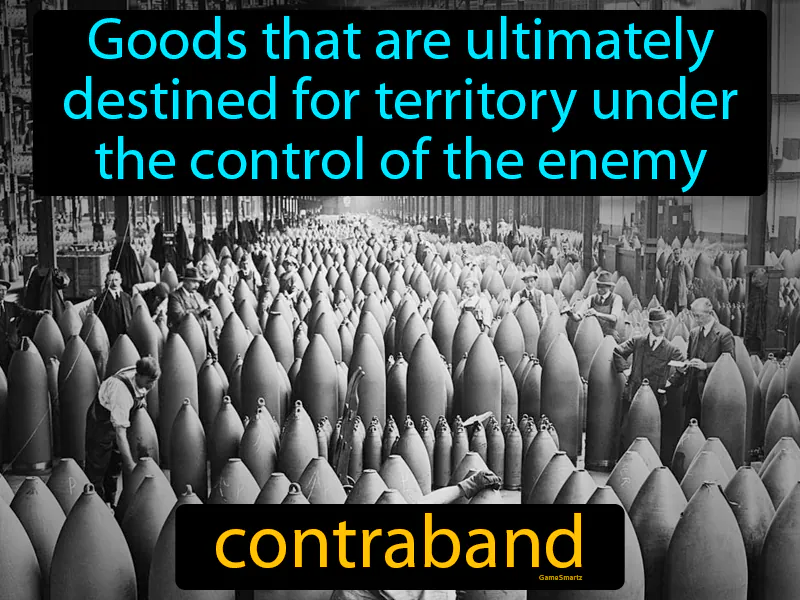Contraband
Contraband:
During World War I, "contraband" referred to goods, especially weapons and supplies, that were prohibited from being traded with enemy nations. Controlling contraband was crucial as it directly impacted a nation's ability to sustain its war efforts; countries would often blockade others to prevent these goods from reaching the enemy. This control represented not only a military strategy but also an economic pressure tactic, as it aimed to weaken the enemy by cutting off essential supplies. Today, the concept of contraband is still relevant, as nations regulate the flow of potentially harmful goods, like illicit drugs or weapons, to maintain safety and security. For example, airport security checks often look for contraband items to protect passengers, reflecting how the idea of controlling dangerous goods remains significant in preserving peace and order.

Practice Version

Contraband: In war, weapons or goods that are going to the enemy. Contraband. In history, contraband refers to items prohibited from being traded or delivered to enemy nations during conflicts.
